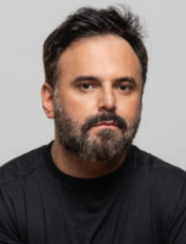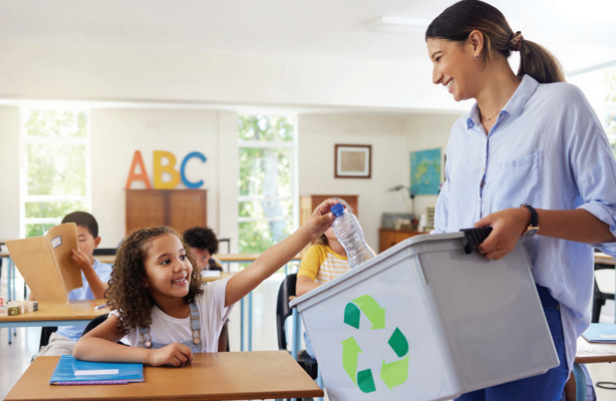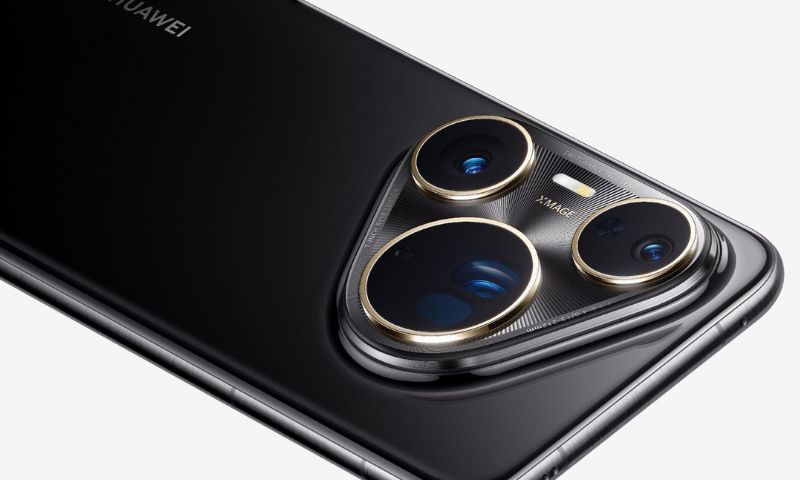
Green Pages – NEWS

THINK GREEN, RESPONSABILITY & SUSTAINABILITY
Samsung
“We believe that knowledge is the greatest equalizer, and by investing in the education of young people, we are investing in the future of the planet.”
By Leda Cavalcanti

Thiago Cesar Silva, marketing director for the consumer electronics division at Samsung Brazil, holds a degree in marketing from the Universidade Presbiteriana Mackenzie. He has specialized in project management from Fundação Getulio Vargas, digital acceleration from Hyper Island, and an MBA in business management from Fundação Dom Cabral. His professional trajectory is diverse, having worked at companies such as Nestlé, Itaú, Carrefour, and Netflix, as well as renowned agencies like JW Thompson and DM9DDB.
Planetary responsibility is a priority for Samsung, which has been investing in several initiatives to minimize its environmental impact. These include developing products with higher energy efficiency, using artificial intelligence to optimize resource consumption, and promoting a circular economy.

Since 2022, Samsung has incorporated recycled materials into all its mobile products. In 2017, it introduced recycled plastics in the chargers of these devices. The Galaxy S24 smartphones feature recycled cobalt in their battery composition, recycled steel in the speakers, and thermoplastic polyurethane (TPU) in the side and volume buttons.
In the social sector, Samsung invests in youth education and knowledge through global programs. It offers opportunities for young people to develop skills in areas such as artificial intelligence, programming, and innovation, contributing to the development of the communities they are part of. These initiatives involve teachers and partner universities.
Green Pages – What are the company’s main commitments on the ESG topic?
THIAGO CESAR SILVA – Sustainability is at the heart of our product journey, from design, energy savings, reusable packaging, trade-in programs to product disposal. Our goal is for all of our products to contain recycled materials by 2025. This year, we aim to collect at least 14,183 tons of electronic waste in Latin America, a 25.7% increase compared to 2023 when Samsung collected 11,280 tons.
PV – Which devices contain recycled components?
TCS – Many devices, and this presence expands with each new release. The mobile experience area, which is responsible for smartphones, tablets, notebooks, wearables (wireless earbuds, smartwatches, and Galaxy Rings), and SSDs, has been using recycled plastics in chargers since 2017. In August 2021, Samsung set an environmental commitment to reach a set of goals by the end of 2025. Our goal by 2030 is to use recycled materials in every module of all our mobile devices.
PV – Can you name products that have these materials?
TCS – The Galaxy S24 smartphones feature recycled cobalt in their battery composition, recycled steel in the speakers, and thermoplastic polyurethane (TPU) in the side and volume buttons. The new Galaxy Z Fold6 and Galaxy Z Flip6 contain a minimum of 50% recycled cobalt in the battery, and 100% recycled rare earth elements have been incorporated into the speakers. For the first time, recycled gold and copper are in their composition. Parts of the Galaxy Book4 Ultra are built with components made from recycled plastic waste (Ocean Bound Plastic), sourced from discarded fishing nets and water barrels. Several TVs use these materials, while the company’s home appliances, memory chipsets, and 5G network chipsets contribute to energy savings. All products come in a box made from 100% recycled paper.

PV – How is the packaging reuse program?
TCS – It encourages consumers to transform the packaging of TVs, monitors, and audio equipment, like soundbars, into household items. To assist with assembly, just scan the QR code printed on the packaging to discover how to reuse it. It can be turned into a pet house or a magazine rack, for example.
PV – How does the company work in terms of energy efficiency?
TCS – Samsung has committed to meeting its electricity needs with renewable energy and achieving net-zero carbon emissions by 2050. In the short term, the DX Division will transition to 100% renewable energy by 2027 and achieve net-zero carbon emissions by 2030.
PV – How was the reduction in energy consumption in standby mode achieved?
TCS – Standby power consumption is a significant contributor to waste. In 2012, we began efforts to reduce standby power consumption in flagship device chargers to less than 0.02 W (20 mW). In subsequent years, we applied the same approach to smartphone chargers, reducing standby power consumption to less than 0.005 W (5 mW) by 2025. We reduced standby power consumption for all our smartphone chargers ahead of schedule. We are minimizing operational waste to achieve our goal of zero waste sent to landfills in global operations.
PV – How does the company assess its progress?
TCS – By obtaining certifications from the Zero Waste to Landfill program by UL Solutions. It evaluates whether facilities have reached zero waste based on the percentage of waste diverted. So far, facilities in Brazil, India, South Korea (Suwon), Turkey, and Vietnam have received Platinum certification, and facilities in South Korea (Gumi) and Indonesia have received Gold certification.
PV – What other initiatives are being invested in?
TCS – The company invests in various initiatives, such as developing products with greater energy efficiency, using artificial intelligence to optimize resource consumption, and promoting the circular economy. Not everyone knows, but our smartphones already contain fishing nets and PET bottles. Regarding packaging, we are eliminating plastic and expanding environmentally friendly items. By the end of 2022, Samsung reached the first of these goals by incorporating recycled materials into all mobile devices, from Galaxy smartphones and tablets to PCs and wearables. By 2030, it will incorporate at least one recycled material into each module of its mobile devices. This will help accelerate progress towards net zero.

PV – How is the company’s environmental management?
TCS – The company invests in clean technologies, promotes the circular economy, and encourages the production of more sustainable items. It has trade-in initiatives such as Troca Smart, Samsung Recicla, and Eco Troca. The first provides discounts on the purchase of a new Galaxy device. The second is a reverse logistics program that enables users to properly dispose of electronics. Samsung provides collection bins in its stores — over 300 throughout Brazil — for small and medium-sized items like batteries, chargers, smartphones, headphones, notebooks, and TVs under 40”. For larger items like refrigerators, washing machines, and TVs over 40”, consumers can request home collection. Eco Troca was created to reduce the improper disposal of electronic waste. It allows consumers to exchange their devices for discount vouchers on Samsung’s online store.
PV – How does the company operate in the social sector?
TCS – We believe that knowledge is the greatest equalizer, and by investing in the education of young people, we are investing in the future of the planet. Through our global volunteer and education programs, such as Samsung Solve for Tomorrow, Samsung Innovation Campus, and Samsung Ocean, we offer young people the opportunity to develop skills in areas like artificial intelligence, programming, and innovation, preparing them to create solutions for the most urgent challenges in their communities. Solve for Tomorrow encourages high school students and teachers from public schools across the country to create innovative solutions through the STEM approach (Science, Technology, Engineering, and Mathematics). The program, now in its 11th edition, has involved over 179,000 students, over 9,000 teachers, and more than 7,500 public schools. This year, it saw a 19% increase in the number of projects submitted compared to 2023.
Samsung Innovation Campus is a global program that provides and encourages skills related to technology and education. Through the Code IoT platform at School, it offers free online courses in programming, basic electronics, robotics, and Android app development. Through Samsung Ocean, a training and technological innovation program, the company offers free activities taught by educators from partner universities, with monthly schedules of classes and free courses for the general public across more than ten knowledge paths.
PV – How does the company engage its employees in the ESG agenda?
TCS – Our employees are key. One example is corporate volunteering, a fundamental pillar of the ESG agenda in driving social transformations and strengthening organizational culture. Recently, when celebrating its 55th anniversary, Samsung reaffirmed its commitment to people by promoting global volunteer initiatives. Samsung Nanum Weeks, held from November 1 to 14, mobilized over 12,000 employees in various initiatives focused on education, innovation, and sustainability. This initiative, which means “sharing” in Korean, strengthened the company’s engagement with communities around the world.
Source: Eletrolar News Magazine – Edition #164





